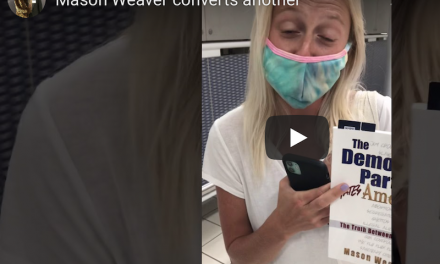LTP News Sharing:
Proposals Target Donations to Radical Causes, Net Zero Plans and DEI Programs
Washington, D.C. – Shareholder activists with the National Center for Public Policy Research’s Free Enterprise Project (FEP) will present proposals at four shareholder meetings this week –Levi Strauss, Pfizer, Goldman Sachs and Cigna.
FEP has provided voting recommendations for these and other key shareholder meetings on its Proxy Navigator app.
FEP’s proposals with Levi Strauss (Proposal #4) and Pfizer (Proposal #8) tackle corporate support of partisan and divisive organizations and charities. Both companies have a history of partnering with radical organizations such as the Human Rights Campaign (HRC), which seeks to indoctrinate elementary school children with radical gender ideology and instruction on sexual orientation by pushing highly sexualized books and lesson plans in school. FEP requests that both companies direct their Boards to create committees on corporate financial sustainability to oversee and review the impact of these policy positions, advocacy, partnerships and charitable giving on social and political matters, and the effect of those actions on Company financial sustainability.
In its Levi Strauss proposal, FEP explains why such accountability is important:
The Company supports divisive organizations and takes public stances on divisive issues that alienate current and prospective consumers despite declining sales and a 22 percent drop in its Americas market.
Recent events have made clear that company bottom-lines, and therefore value to shareholders, drop when companies take overtly political and divisive positions that alienate consumers. Following Bud Light’s embrace of partisanship and disparagement of its customer base, its revenue fell $395 million in North America when compared to the same time a year ago. This amounts to roughly 10 percent of its revenue in the months following its leap into contentious politics. Target Corporation’s market cap fell over $15 billion amid backlash for similar actions. And Disney stock fell 44 percent in 2022 – its worst performance in nearly 50 years – amid its decision to put extreme partisan agendas ahead of parents’ rights.
In its Pfizer proposal, FEP notes that the Company is “donating untold sums of money to promote divisive agendas outside its fiduciary remit.” For example:
Pfizer also “generously” funds the HRC’s “Healthcare Equality Index”(HEl). To earn a perfect HEI score, “hospitals must display LGBT symbols, solicit and use patients’ preferred pronouns, and conduct trainings on LGBT issues.” They must also “provide the same treatments for gender dysphoria that they provide for other medical conditions-meaning a hospital that uses puberty blockers to treat precocious puberty cannot withhold the drugs from children who say they’re transgender.”
FEP’s proposal at Goldman Sachs (Proposal #10) requests that the company audit its assumptions and consider other research with regard to its net zero emissions (NZE) policies.
In its proposal, FEP explains why it’s important for Goldman Sachs to take a closer look at its energy investments:
A 2023 study by the Energy Policy Research Foundation found that net zero advocates have misconstrued the International Energy Agency’s (IEA) position on new oil and gas investment, and that the IEA has made questionable assumptions and milestones for NZE about government policies, energy and carbon prices, behavioral change, economic growth and technology maturity.
The ERF study found, “Oil and gas play irreplaceable roles in modern civilization that are not reproduceable with low-carbon alternatives. The attempt to substitute them with inferior, less efficient, energy sources will have enormous micro- and macroeconomic consequences and profound geopolitical implications.”
…Should the ERF’s study prove true, Goldman Sachs stands to lose its renewable energy investments, plus the costs of reverting back to reliable energy sources. Additionally, it appears that most countries are not really going to outlaw reliable and affordable energy, further making current net-zero stranded-asset theory non-sensical.
FEP’s proposal at Cigna (Proposal #5) seeks to audit to what extent the Company’s Diversity, Equity and Inclusion (DEI) policies are discriminatory, and to evaluate the financial risks such discrimination poses.
In its supporting statement, FEP notes:
In just the past year, a corporation was successfully sued for a single case of discrimination against a white employee resulting in an award of more than $25 million. The risk of being sued for such discrimination appears only to be rising. With over 70,000 employees, Cigna likely has 50,000 employees who are potentially the victims of this type of discrimination because they are white, Asian, male or straight. Accordingly, even if only 10 percent of such employees were to file suit, and only 10 percent of those prove successful, the cost to the company could exceed $12 billion.
More information about these proposals, as well as other key votes, can be found in FEP’s mobile and web app, ProxyNavigator.
About
The National Center for Public Policy Research, founded in 1982, is a non-partisan, free-market, independent conservative think-tank. Ninety-four percent of its support comes from individuals, less than four percent from foundations and less than two percent from corporations. It receives over 350,000 individual contributions a year from over 60,000 active recent contributors. Contributions are tax-deductible and may be earmarked for the Free Enterprise Project. Sign up for email updates at https://nationalcenter.org/subscribe/.
Follow us on Twitter at @FreeEntProject and @NationalCenter for general announcements. To be alerted to upcoming media appearances by National Center staff, follow our media appearances Twitter account at @NCPPRMedia.
Author: The National Center







